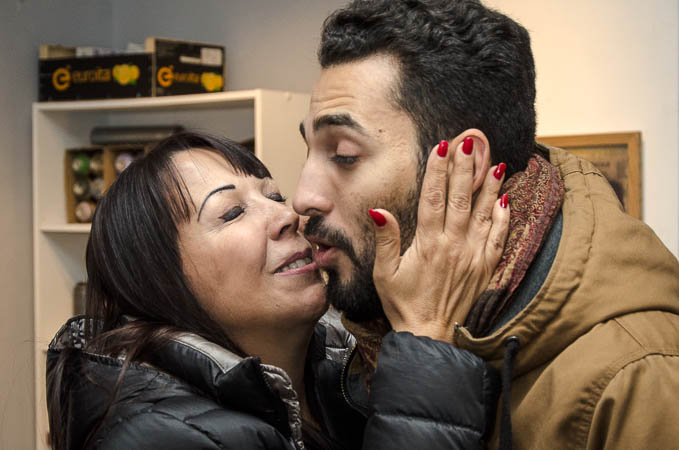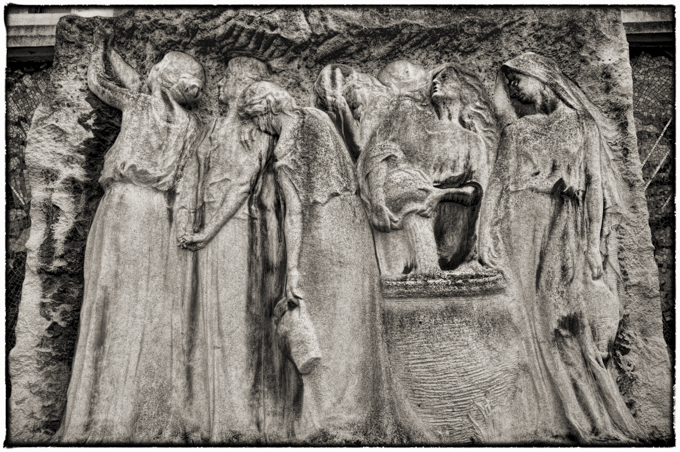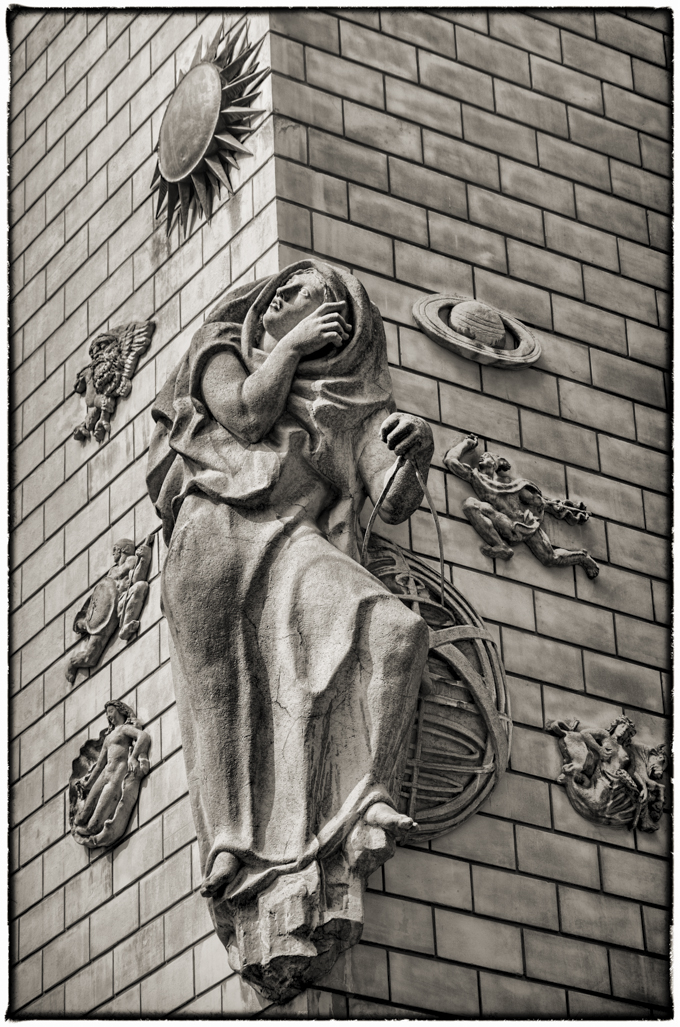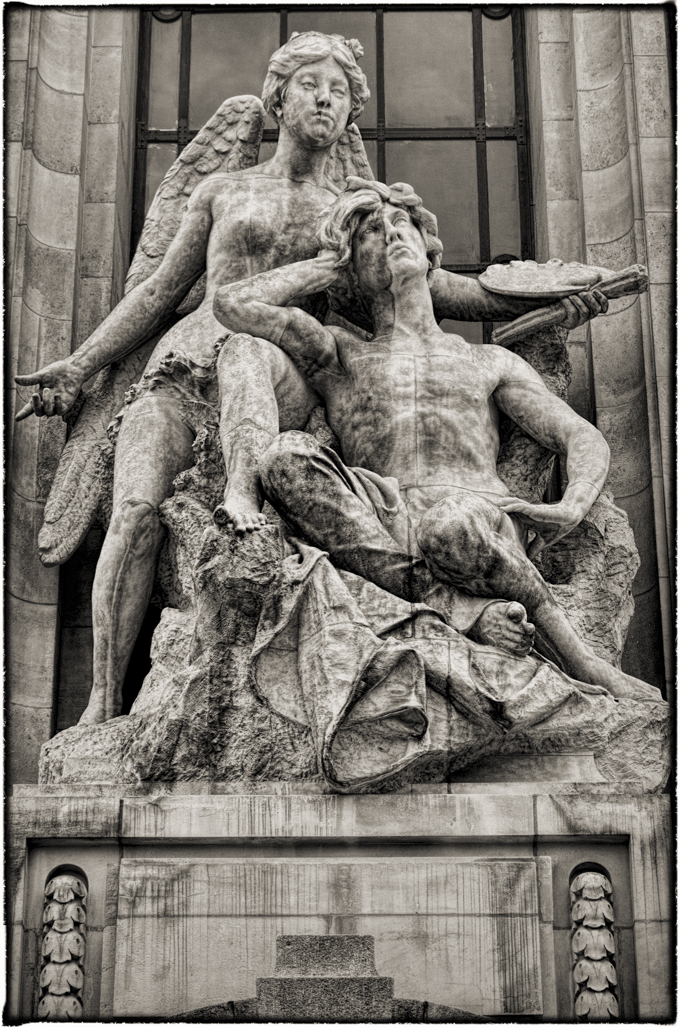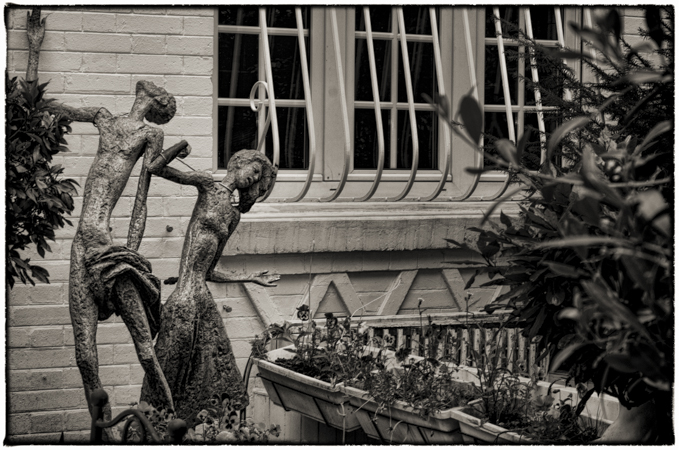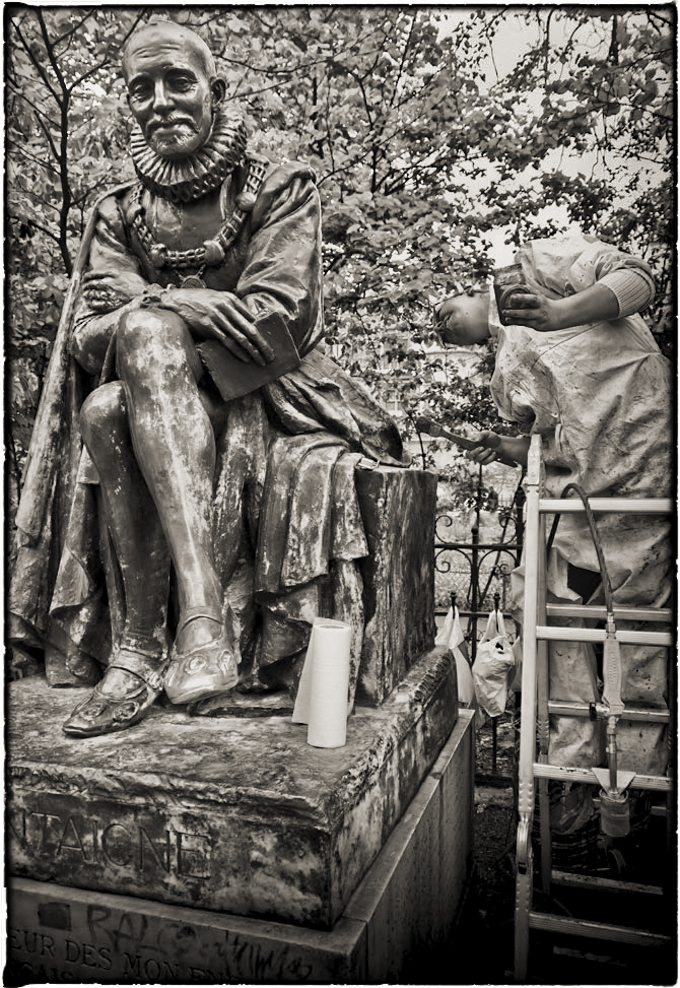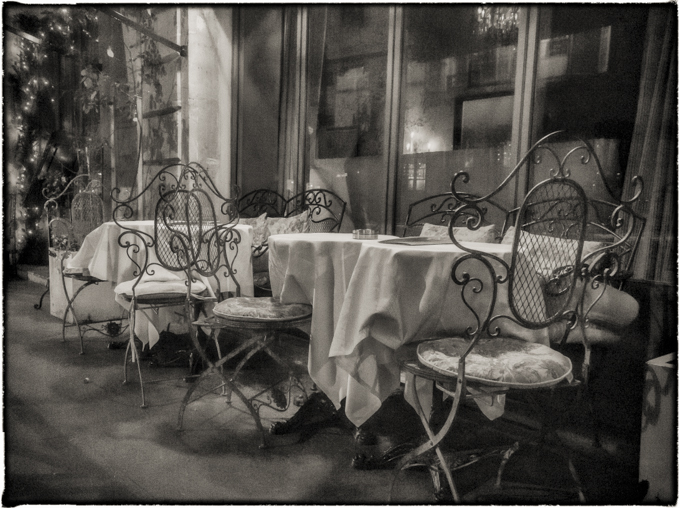The Artist's Mother
 01.8.2016
01.8.2016
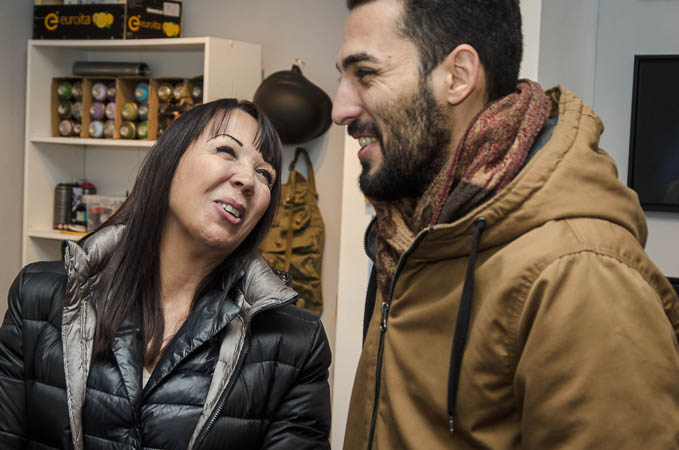
After Thom-Thom gave us our weekly French lesson, we three took the Mètro from the Latin Quarter to an art gallery near L’Opéra.
We walked through a dark courtyard, Thom-Thom, Richard and I. Everyone held a drink, or was smoking. Tonight I didn’t want a drink, I only wanted to see Combo Culture Kidnapper’s art. He's a tall, bearded street artist we've covered four times before, in Facebook posts, whose "Co-exist" campaign in the wake of the Charlie Hebdo massacres was embraced by Parisians of all religions and backgrounds.
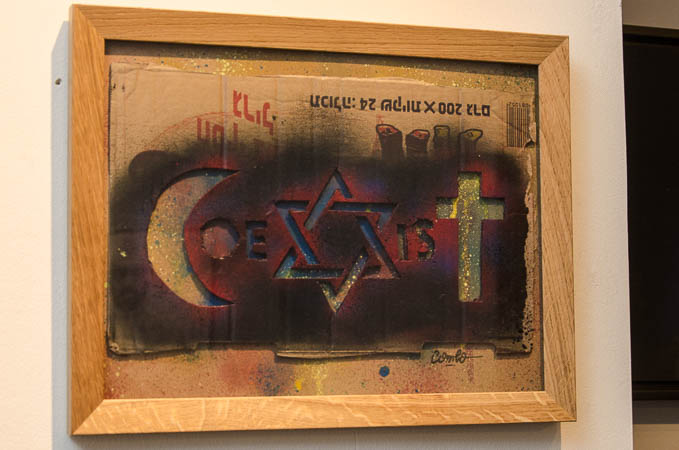 Artwork © 2016 Combo Culture Kidnapper
Artwork © 2016 Combo Culture Kidnapper
The gallery was small, beautifully lit, with every wall featuring his work. There were at least five or six different styles of portraits of men and women. Every once in a while you see an exhibition in which you love everything, and this was one. But what I loved most were three drawings of "terrorists" based on Star Wars Jedi: a Christian, a Muslim, and a Jew. In these three drawings, Culture Combo addressed the recent terrorist acts around the world with the most potent weapon: humor. But not divisive humor, unifying humor, cross-cultural humor. He himself straddles different cultures; his father is Lebanese Christian; his mother Moroccan Muslim, and he is French.
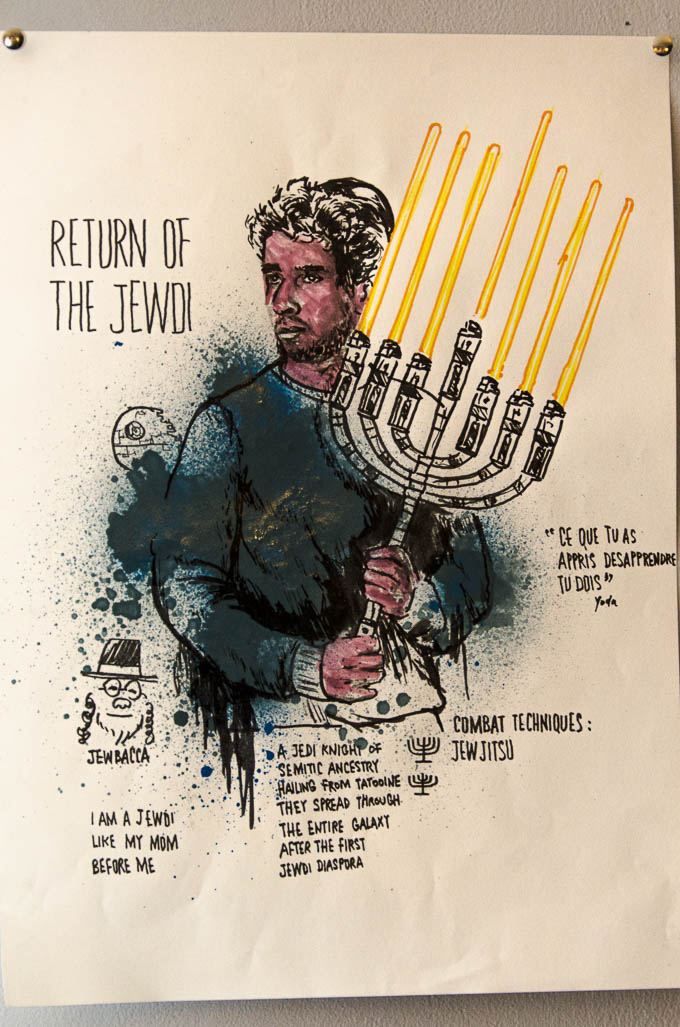 Artwork © 2016 Combo Culture Kidnapper
Artwork © 2016 Combo Culture Kidnapper
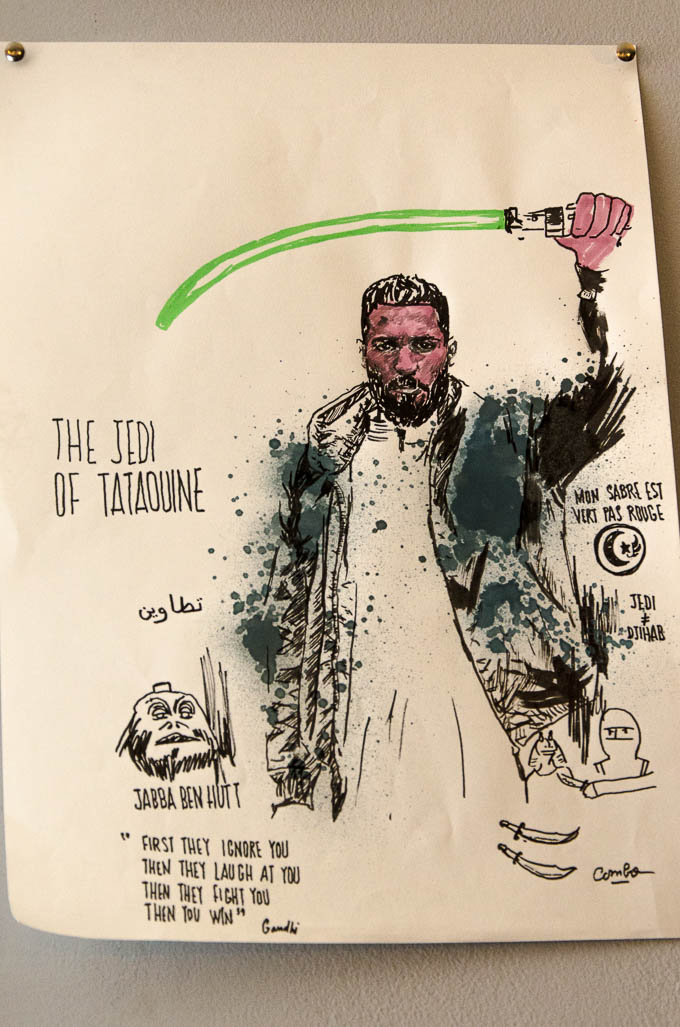 Artwork © 2016 Combo Culture Kidnapper
Artwork © 2016 Combo Culture Kidnapper
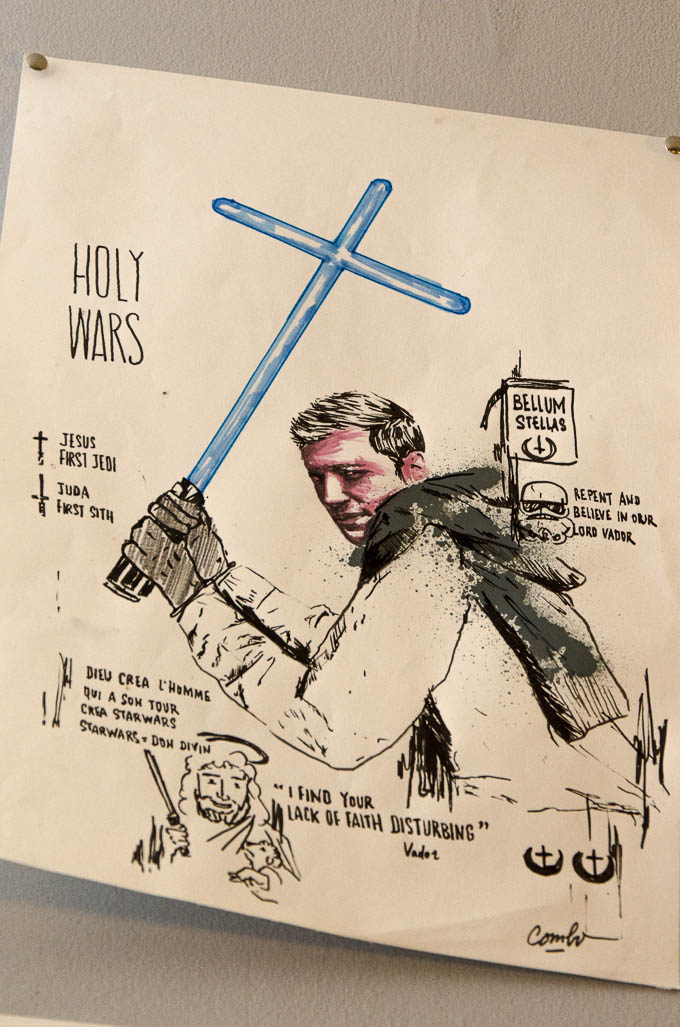 Artwork © 2016 Combo Culture Kidnapper
Artwork © 2016 Combo Culture Kidnapper
I saw a woman with long dark hair and a beautiful presence, seated in a leather chair in one corner of the room. I asked her if this was her art gallery. Non, she said, she was the mother of the artist. I told her what I thought of her son’s work. She complimented me on my French.
A friend of hers joined us. We talked a bit, and I learned that she was a former flamenco dancer, and now a psychologist and hypnotist. Hypnosis, she says, is a creative process. It helps to be an artist. It’s a dialogue between you and the patient. You have to be able to imagine yourself within another’s mind. It sounds like writing, I say, like getting into the heads of your characters. Yes, she said, and she’d always wanted to write. Then you must do so, I said. One of these days she might. And why not now? I asked.
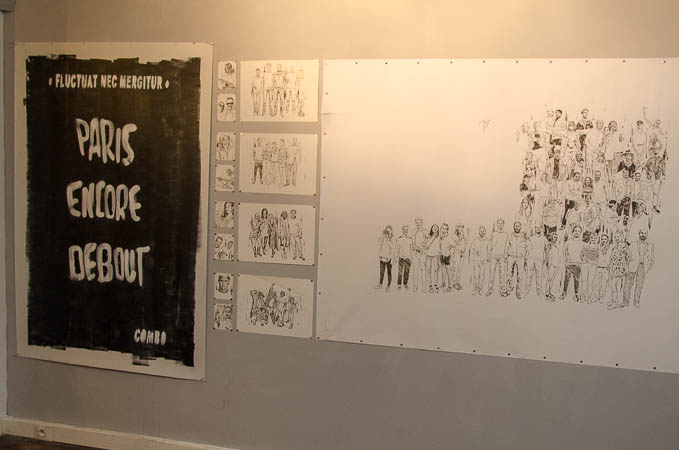 Artwork © 2016 Combo Culture Kidnapper
Artwork © 2016 Combo Culture Kidnapper
She asked me if I’d ever been to Morocco. “No,” I said. “We were about to go last year, when the first terrorist acts were committed in Paris. We decided not to go, because we’re Americans. Since Bush in 2001, our government's policies toward the Muslim world have put a target on our backs.”
“Non,” she said, and her friend agreed, “Morocco is safe for Americans. It’s well-secured. The Moroccan police helped the French after the terrorist attacks.”
Richard approached and snapped more photos, and we discussed the safety of Morocco with him. And then Combo came over. I repeated what I’d said to his mother about the power of humor to dissolve hatred. She corrected my pronunciation (because I’d said I didn’t want to speak English, I wanted to master French). “L’humour sounds like l’amour,” she said. Oh yes, I’ve made that mistake before. It was hard to wrap my tongue around the word when it followed the “l’hu-” sound. It kept coming out as “l’amour.”
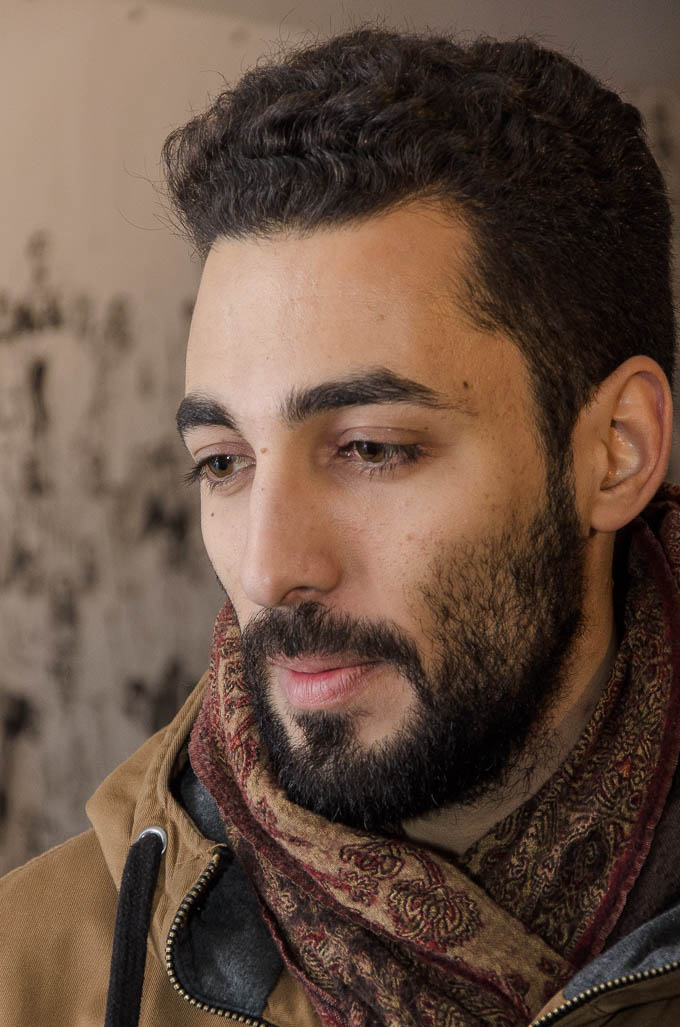
Richard showed us all a fresh photo on the rear screen of his Nikon, of Combo, with his long lashes and dreamy eyes. And I thought, Isn’t that perfect, a mother who can hypnotize, and a son with dreamy eyes.
